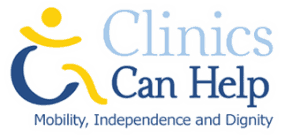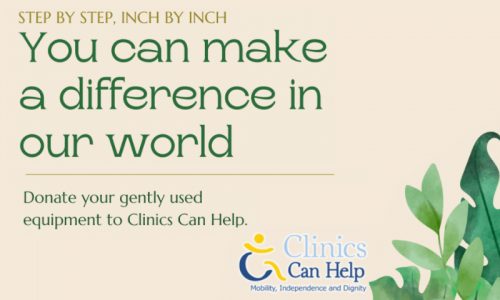These days, we’re all doing whatever we can to save money. What if our efforts could also help protect the planet? And what if one phone call accomplished both goals?
Suppose you or a family member has an unexpected injury or illness. In that case, you know how expensive single-use medical supplies or adaptive equipment, like crutches or canes, can cost at your pharmacy. After you’ve recovered from your health challenge, it can be hard to find extra closet space for a clunky walker or a tall set of crutches.
Likely, the high price you paid would discourage you from merely hauling these items to your curb on trash day. Sadly, that’s not always the case with some hospitals and nursing homes. According to the Medsurplus Alliance, an estimated 800 tons of resuable medical equipment is wasted each year.
Clinics Can Help operates on the principle of “organized recycling.” We receive donations of gently used medical equipment that you or your family member no longer need. We carefully inspect, clean, and repair the items and store them in our Lending Closet, until we get a request from someone else in need of the same things.
We also receive donations of used medical equipment directly from local businesses. Additionally, hospitals, rehabilitation facilities, nursing homes, and assisted living facilities can call us for pickup or bring their supplies to our warehouse.
Once individuals finish with their borrowed medical equipment, we receive it back from them and start the recycling process all over again. When donated equipment is no longer suitable for lending, we disassemble it completely for sustainable recycling.
Ready to be part of helping your neighbors and the planet? Contact us directly.
References:
World Health Organization. February 2018. Health-care waste.
https://www.who.int/news-room/fact-sheets/detail/health-care-waste
Anne Ordway, Jennifer S. Pitonyak & Kurt L. Johnson (2020) Durable medical equipment reuse and recycling: uncovering hidden opportunities for reducing medical waste, Disability and Rehabilitation: Assistive Technology, 15:1, 21-28, DOI: 10.1080/17483107.2018.1508516

